If you’d like to learn more about Explorer Summer Kids’ Camps, then visit their website or Facebook page
Ljubljana related
STA, 9 April 2021 - The National Institute of Public Health (NIJZ) has so far received 3,816 reports of side effects after 404,000 Covid-19 vaccinations. In 16 cases serious side effects have been reported after vaccination with the AstraZeneca vaccine, including deep vein thrombosis and pulmonary embolism, but a link to the vaccine has not been confirmed.
Vaccination with the Pfizer and BioNTech vaccine started at the end of December last year, Moderna vaccine has been in use since the second week of January and AstraZeneca from the second week of February.
Until 4 April, at least 276,000 shots of the Pfizer vaccine have been administered with 2,331 reports of side effects, mostly mild ones.
32 reports included undesired events. A dozen older people with several chronic diseases died after the vaccination. In the first case, the person died of a heart attack a day after the vaccination. In the second case, a sudden death occurred 12 days after vaccination in a person with severe chronic heart disease.
In the third case, a person was vaccinated during an incubation period following a coronavirus infection and developed pneumonia, which caused the death.
In the fourth case, death occurred eight days after vaccination because of a heart attack that was a result of an infection of unknown source.
A commission at the Health Ministry analysed all four cases to conclude that connection to the vaccination was not very likely, while the other cases are still being investigated.
In four cases of serious side effects after vaccination with Pfizer, persons had to be hospitalised after they collapsed a few hours after vaccination as they were recovering from Covid-19, a stroke, chest pain, and leukaemia. In these cases connection to the vaccination is also not very likely, the report says.
The commission is also still investigating cases when hospitalisation was needed of vaccinated persons over an allergic reaction, anaphylaxis, a deep vein thrombosis, pulmonary embolism, stroke, heart attack, a spontaneous pneumothorax, deterioration of heart failure due to infection of the respiratory system, collapse due to infection of an unknown source, epileptic seizure, fever, chest pain and sever headache.
The NIJZ has also received 1,441 reports of side effects after at least 90,000 shots of the AstraZeneca vaccine had been administered. 16 cases included serious side effects, which is 1.1% of the cases.
Two persons with chronic diseased died a few days after the vaccination. One of the persons had been receiving palliative care due to advanced cancer and the other case is still being investigated.
In one case a person had to be hospitalised for chest pain and breathing difficulties, which is unlikely related to the vaccination, according to the commission.
The commission is still investigating cases when hospitalisation was needed after vaccination due to an allergic reaction, a heart attack, paraesthesia, fever with allergic reaction, heartbeat disorders, unstable angina pectoris, deep vein thrombosis and pulmonary embolism.
After 38,000 shots of the Moderna vaccine have been administered, 44 cases of side effects have been recorded, including one serious side effect, which is 2.3% of all reports.
An older person, who seems to have been infected with coronavirus developed pneumonia after vaccination and died. The case is still being investigated.
STA, 8 April 2021 - The Constitutional Court has stayed a provision of a government decree which restricts travel to countries on Slovenia's red list of high-risk countries due to Covid-19, pending its final decision.
In a decision published in the Official Gazette on Thursday, the court invoked its right to stay legislation to prevent the occurrence of irreparable damage.
It said the decree, adopted by the government in late March, "severely restricted" the right of all those with residency in Slovenia, Slovenian nationals as well as foreigners, whereby the rules for leaving the country are stricter than for entering.
The right of individuals to leave the country is enshrined in many international legal instruments and is key to the functioning of a democratic system.
It may be restricted only in the pursuit of a legal and constitutionally admissible objective, whereby individual circumstances must be considered and the limitations may not cause discrimination.
"The continued implementation of the contested provision would encroach on the right of a large number of residents of the Republic of Slovenia to leave the country."
"It is also necessary to consider that limitations on the freedom of movement may cause other consequences to physical and mental health, property, family life and other areas that are hard to rectify or irreparable," it said.
The decision was passed in a 8:1 vote following petitions by three applicants, with judge Klemen Jaklič dissenting.
The government decree, which governs measures on the border designed to minimise Covid-19 transmission, entered into effect on 29 March.
It banned travel to all red-listed countries - all of Slovenia's neighbouring countries included - except for individuals who have been vaccinated, convalescents, and a narrow set of exemptions.
One way to avoid the ban was to pay a EUR 400 fine under the communicable diseases act.
In one instance last week, the Administrative Court issued a temporary injunction allowing an applicant to leave the country without paying a fine.
Interior Minister Aleš Hojs said the decision meant Slovenia would not be able to get rid of the virus soon, adding that Constitutional Court judges were not accountable and were incapable of decisions save for temporarily staying legislation.
Asked whether it was possible the decree will be adjusted, he told the STA people would be allowed to leave the country freely, but entering would not be so simple anymore.
STA, 8 April 2021 - The SPIRIT agency issued on Thursday a second call for micro, small and medium-sized tourism and hospitality companies for the co-funding of operating costs in the first wave of the epidemic in spring 2020. EUR 36.2 million is available and over 6,000 companies are expected to apply, with the aid to be paid out at the end of June. [Details on the website – Slovene only]
Firms will receive a lump sum ranging from EUR 900 to EUR 9,999 for the period between 12 March and 31 May 2020, said the SPIRIT agency for entrepreneurship, internationalization, foreign investments and technology.
The money is meant to help them remain in business and preserve jobs, or to relaunch after the coronavirus restrictions are lifted, SPIRIT said in a statement.
The agency's director Tomaž Kostanjevec said SPIRIT was aware that the country's tourism and hospitality companies had been hit hardest.
He said that at least 6,400 companies are expected to apply for funds as part of the second scheme.
SPIRIT published the first such call last November, making EUR 10 million available for up to 1,000 companies.
The lump sum was capped at EUR 9,999, with as many as 821 companies having received the aid. SPIRIT did not specify how much money had been paid out.
Two groups are now eligible: companies which have their financials publicly available in the AJPES database for 2019 and those which do not have them in the AJPES database but have had their taxes assessed by the Financial Administration on the basis of their reported income.
Those from the first group will get a lump sum at 16.5% of their 2019 costs, labour costs excluded, and those from the second group at 12% of their entire costs. . [Details on the website – Slovene only]
STA, 8 April 2021 - Pupils will return to schools and the youngest children to kindergartens following an 11-day circuit-breaker lockdown on Monday under a decision taken by the government on Thursday, which is in line with the promise made before the country entered its third coronavirus lockdown.
The return to kindergartens and primary and secondary schools will follow the same model as before the lockdown, which means all primary pupils will return to schools, while most secondary pupils will alternate between in-class and remote learning every week, Education Minister Simona Kustec told reporters.
The alternate weeks model applies only to year one to three secondary students, while final year pupils have in-person teaching all the time just like primary pupils.
Student dorms for secondary pupils will reopen on Sunday when the relevant decree adopted by the government today will take effect.
Face masks will remain mandatory in classrooms and schools for primary pupils from the sixth to ninth form, for all staff and for all secondary students, while kindergarten children and primary pupils up to the fifth form are required to wear masks in common school areas outside their classrooms.
Face masks will not be obligatory for pupils during physical education classes.
Higher education institutions remain closed for now except for practical training or exams by groups of up to ten students. For most students, dorms remain closed as well.
In music schools only one-on-one instruction is permitted, it follows from the government decree.
While staff are already being tested for coronavirus weekly, voluntary self-testing is being introduced for older pupils with Kustec saying the measure should be accepted "in good faith" as a measure to fight the virus.
"Schools will be sent an informative film in the coming days so that parents and pupils will be able to learn about the voluntary testing procedure in detail," the minister said, adding the project would be presented to secondary school head teachers in detail tomorrow and then next week to the head teachers of primaries.
The minister could not say yet when self-testing would begin, noting that pupils and parents need to get all the necessary information first, but she hopes it could be introduced as soon as possible.
She said preliminary data collected by schools show about 20% of the year six to nine primary pupils and between 18% and 19% of secondary school students are willing to self-test, which Health Minister Janez Poklukar recently said pupils would perform at home.
Asked about the low interest expressed in self-tests, the minister said it was "essential all of us and everyone among us does as much as possible to make sure school premises remain safe and that schooling can continue in-person until the end of the school year".
Kustec believes once "it has become clear this is about a genuine intention to help individuals and the broader school space the measure will be used more actively".
The minister said her ministry was in discussion with officials from the National Institute of Public Health to determine potential scenarios for the matura secondary school-leaving exam for events such as quarantine orders issued to classes. The exam will start with an essay just after May Day holidays.
The minister also hopes for a return of sports, but it would depend on the opinion of health experts, she said.
With the exception of outdoor exercise involving an individual or members of the same household, sports have been banned since 1 April, except for top registered athletes. Even for those national competitions have been put on hold.
The government is meeting later today to make potential changes to its traffic lights system of measures to apply from 12 April after the lockdown imposed on 1 April ends.
STA, 8 April 2021 - The government is expected to potentially change the strategy for a gradual easing of restrictive measures based on the epidemiological situation at a session on Thursday, and decide on the education process after 12 April when the circuit breaker lockdown is scheduled to end.
The STA learnt unofficially that the Covid-19 task force has proposed to the government to keep kindergartens and primary schools open even when the epidemiological situation calls for tier red and have secondary school students study under model C, meaning half the class is in school for a week while the other half continues learning from home.
Under the current plan, kindergartens and the first three grades of primary school switch to model C in tier red, while the rest study from home.
The task force proposes that in tier orange, secondary schools also reopen for all students not just the final grades under model C.
The experts would also abolish the 10pm-5am curfew in the tier red for individuals or several members of the same household.
They also propose that bars and restaurants be allowed to serve their customers outdoors in tier orange and that masks no longer be obligatory outdoors if a safety distance is kept.
They also propose a compensation for those in isolation due to infection and those in quarantine because of a risky contact.
The seven-day rolling average of new daily cases was at 889 on Tuesday, which means the country would be in tier orange if it was not for the 11-day circuit breaker lockdown. However, last week the seven-day average exceeded 1,000, which would mean tier red.
The National Institute of Public Health (NIJZ) estimates there were almost 13,300 active cases in the country on Tuesday.
All our stories on covid and Slovenia
STA, 8 April 2021 - Slovenia will not change its Covid-19 vaccination strategy for the time being, the head of the national immunisation advisory body has said after the European Medicines Agency (EMA) announced that unusual blood clots should be listed as a very rare side effect of the AstraZeneca vaccine.
Speaking for the commercial broadcaster POP TV last night, Bojana Beović, the head of the national advisory committee on immunisation, said Slovenia would not change its approach over the EMA announcement for the time being, which means the AstraZeneca vaccine remains reserved for 60-65-year-olds.
"The approach can obviously not be changed every few days, because it involves logistics on the ground [...] It doesn't appear to make sense to change any approach at the moment," said Beović, adding that the approach would likely be changed in mid-April as planned when the Johnson&Johnson vaccine is included as the fourth jab.
"I believe other European countries will have opted for certain approaches by then too. We're mainly looking at large European countries, which have experiences with those undesired events themselves," said Beović, the head of the Slovenian Medical Chamber who used to serve as the chief Covid-19 advisor to the government.
Slovenia has not recorded any case of such blood clotting linked to the jab thus far.
Beović made the comments after Health Minister Janez Poklukar announced he would call on the national advisory committee on immunisation to examine EMA's findings and to put forward its position on the issue.
Yesterday afternoon EMA said it had concluded there was a possibility of very rare cases of blood clots combined with low levels of blood platelets occurring within two weeks of vaccination with the AstraZeneca jab, which should be listed as a very rare side effect of the vaccine.
EMA also said the benefits of the vaccine outweighed the risks of side effects, urging those responsible to continue to administer the vaccine.
After the announcement, EU health ministers met for an informal virtual meeting, but failed to reach an agreement on joint guidance on the vaccine's use.
In his address, Minister Poklukar said Slovenia was closely monitoring the situation and taking appropriate precautionary measures.
According to a press release from his ministry, Poklukar also said it would be welcome if EU member states managed to reach unity in response to EMA's conclusions, possibly including on criteria for the age limit on vaccination with the AstraZeneca jab if that should be necessary.
Poklukar also underscored that enhancing trust in vaccination was the best tool available in the fight against the pandemic.
STA, 6 April 2020 - The Slovenian Student Organisation has raised concern after a survey conducted by the National Institute of Public Health (NIJZ) has shown almost one out of four students have experienced suicidal thoughts during the epidemic.
The survey, conducted between November and January, showed 89% out of 484 students surveyed had experienced mood swings such as anxiety and depression in the past four weeks.
Almost 24% reported experiencing suicidal behaviour. They also reported anxiety, despondency, crying episodes, depression and panic attacks.
Related: Covid, Mental Health & Children’s Summer Camps in Slovenia
Commenting on the results for Radio Slovenija, psychologist Tomaž Vec called them horrific. "One in four students is thinking about suicide. It's a piece of information that should prompt the state into action."
The Student Organisation (ŠOS) said the results should lead to a thorough change in the measures aimed at containing coronavirus transmissions.
They noted their calls for state aid to compensate students for a loss of income and reopening colleges as soon as possible to allow lectures and practical classes to resume in-person.
An interview with Steve Hartley, the Osilnica-based camp director from Australia.
At Explorer Camps you’ve had a lot of contact with children of all ages and their families. What impact are these virus affecting times having on our children?
Statistics gathered before covid show that 1 in 5 teenagers are living with a mental illness.
Sounds unbelievable, right? We didn’t believe it when we were first presented it in our youth mental health training for camps, but it’s actually true.
The truly scary part is that it's more likely to be 1 in 4 adolescents or even 1 in 3. This is because it’s based on diagnosed cases, and considering that many children simply won’t go through the formal steps of getting a formal diagnosis done then … the number is without doubt higher!
And remember, this is all from BEFORE we got hit by this virus.
Related: Slovenia’s Foreign Entrepreneurs: Steve Hartley, Explorer Summer Kids' Camps
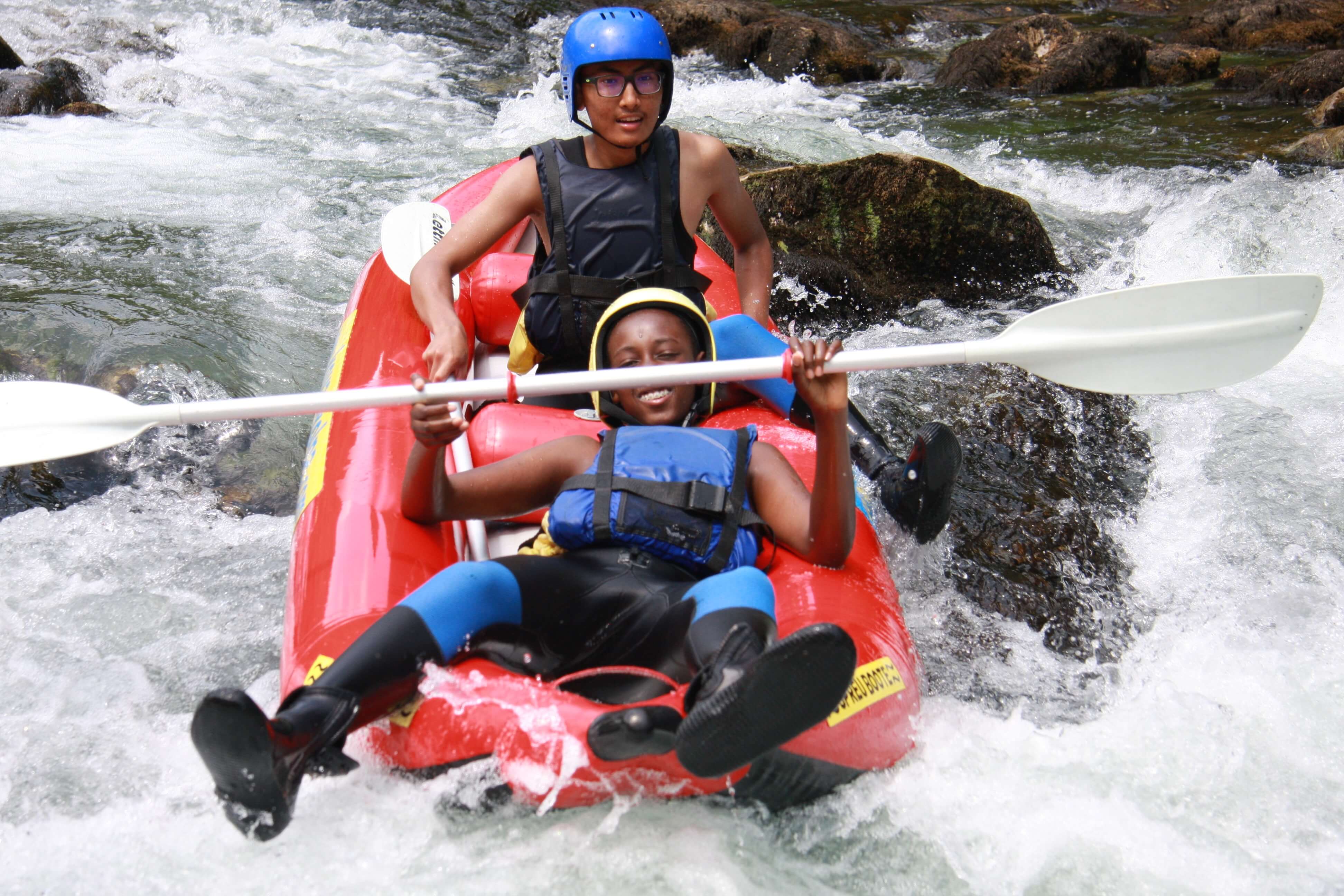
Shocking statistics. Is it safe to say that our youngsters could be experiencing some form of mental health crisis?
This is the cold hard truth facing all parents and it paints a very troubling picture for the future. Reportedly, over 25% of our teen population is living with some kind of mental illness and recent times have led to this number being even higher.
A recent poll from C.S. Mott Children’s Hospital shows that the mental health effects of the pandemic are more likely to have a significant impact on teenagers. It says that 46 percent of parents say their teen had shown signs of a new or worsening mental health condition since the beginning of the pandemic in March 2020.
Even our adults are feeling the effects. According to the Kaiser Family Foundation, 4 in 10 adults have reported anxiety or depressive disorder symptoms during the pandemic.
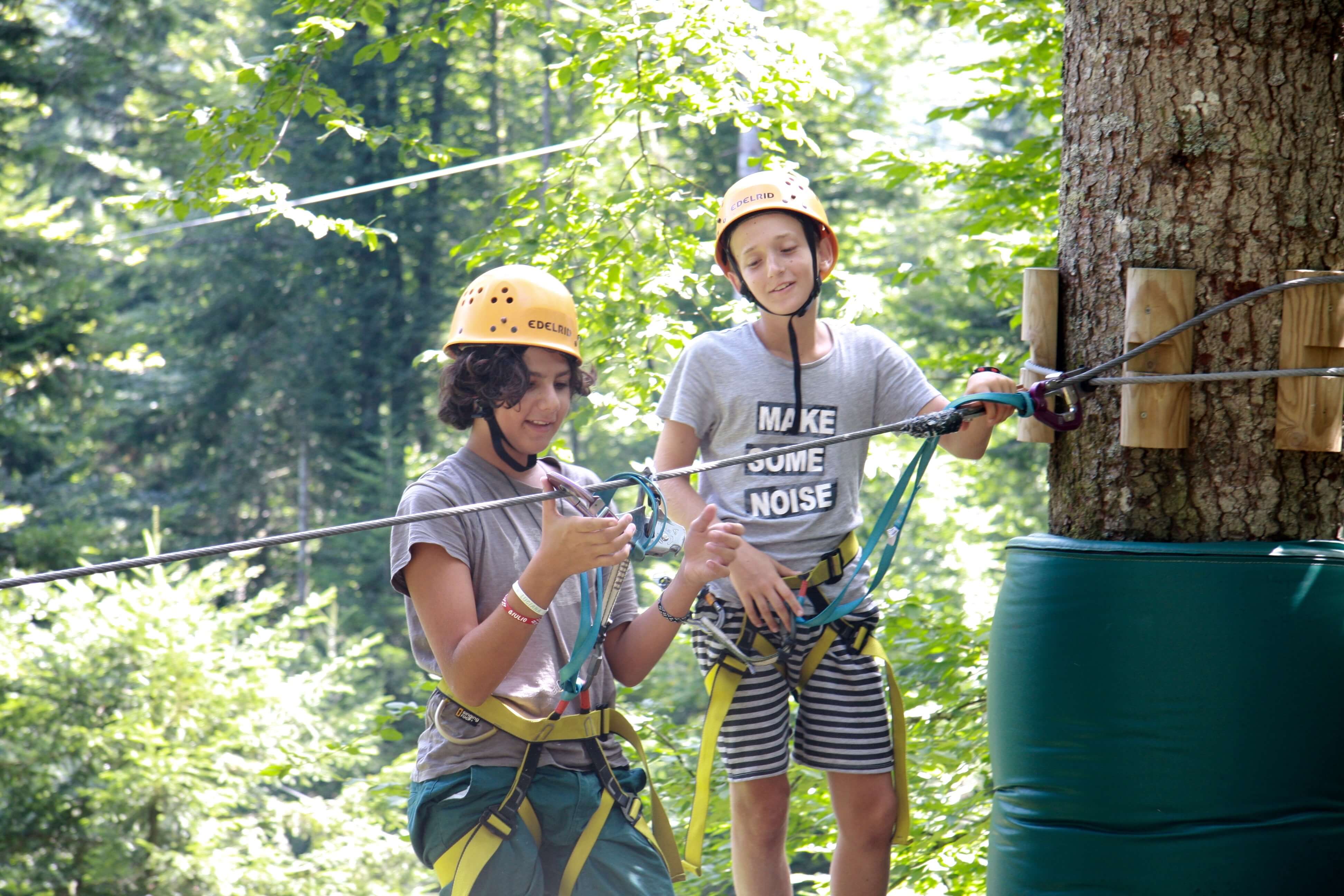
So, children aren’t alone in this mental health crisis?
Not at all. The summer camp industry is calling it a ‘collective trauma.’ From grandparents to grandchildren, from rich to poor, all ages, classes and levels of society. Everyone has lost something. Maybe they’ve lost a loved one. Maybe they’ve lost a life experience such as graduation, or dropping off their children at kindergarten for the first time, or getting married. Maybe they’ve lost a job or income. Everyone has lost something which has led to this ‘collective trauma.’
Do you think that our youth is especially impacted?
Judging by recent polls, limited studies, and personal experiences … yes.
In ‘normal times,’ if we can even say there’s such a thing, our children turn to their parents or adult like figures for guidance. However, during the pandemic parents simply don’t have the answers because no one really does …. so, who can the youth turn to next? Google. And then it gets even more confusing! Maintaining a positive state of mental health is becoming increasingly challenging for our youth.
For example, it’s been widely reported in the US that suicides rates have gone up during the pandemic.
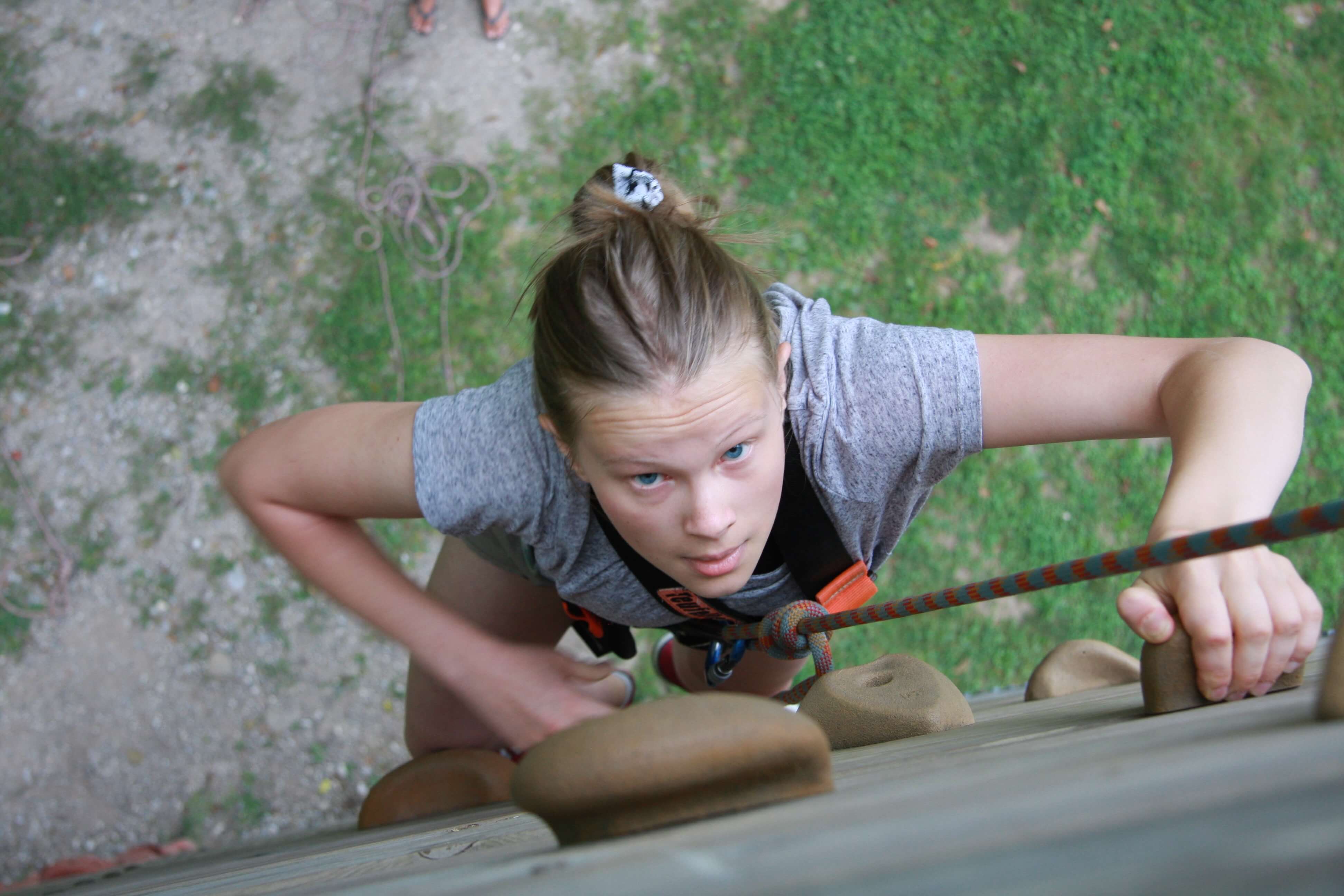
Is this suicide rate being reflected in Slovenia?
It’s difficult to know at this stage as such information isn’t really public knowledge, especially amongst children. However, an example is Clark County in the US which has experienced over 20 teen suicidal deaths since the start of the shutdown last March which represents an over 67% increase on the previous year. Very worrying times as the pandemic has been solely blamed for this outcome.
They definitely are. How about we look at what the mental state SHOULD be. What is pre-teen and teenage mental health?
Mental health is a way of describing social and emotional wellbeing. Children need good mental health to develop in a healthy way, build strong relationships, adapt to change and deal with life’s challenges.
Parents should be asking whether their pre-teens and teenagers:
- Feel happier and more positive about themselves and enjoy life.
- Have healthier relationships with family and friends.
- Do physical activity and eat a healthy diet.
- Get involved in activities.
- Have a sense of achievement.
- Can relax and get a good night’s sleep.
- Feel like they belong to their communities.
There is one BIG question though …
… in the current COVID affected times where children have been repeatedly restricted to their homes without direct contact with their friends and usual extra-curricular activities and been constantly glued to their screens …
… is it actually possible for parents to answer positively to all of these questions? I’ve got my doubts.
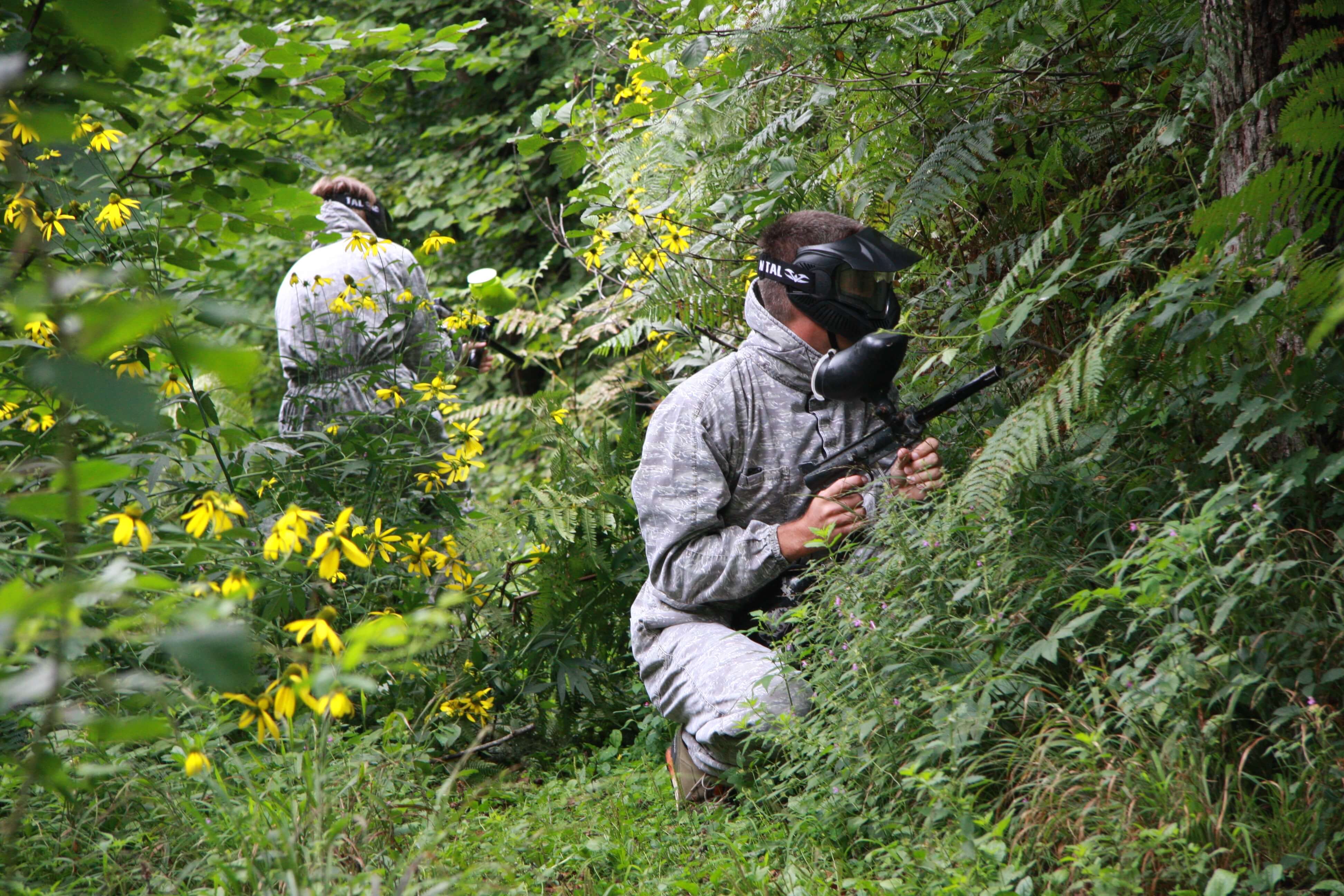
You brought up ‘screen time’ which seems like a buzzword in these times. Do you think the overuse of technology plays a major role when it comes to youth mental health?
According to experts, it’s definitely a contributing factor and is why Explorer Camps has been tech free from our conception. We’ve always believed in the importance of our youth detoxing from electronic media as much as possible and in these times it’s even more vital than ever.
Some studies are suggesting that screen time is up over 180% when compared to already high use prior to the pandemic, so it’s frightening even contemplating just how badly affected our youth are and what the long-term impact may be.
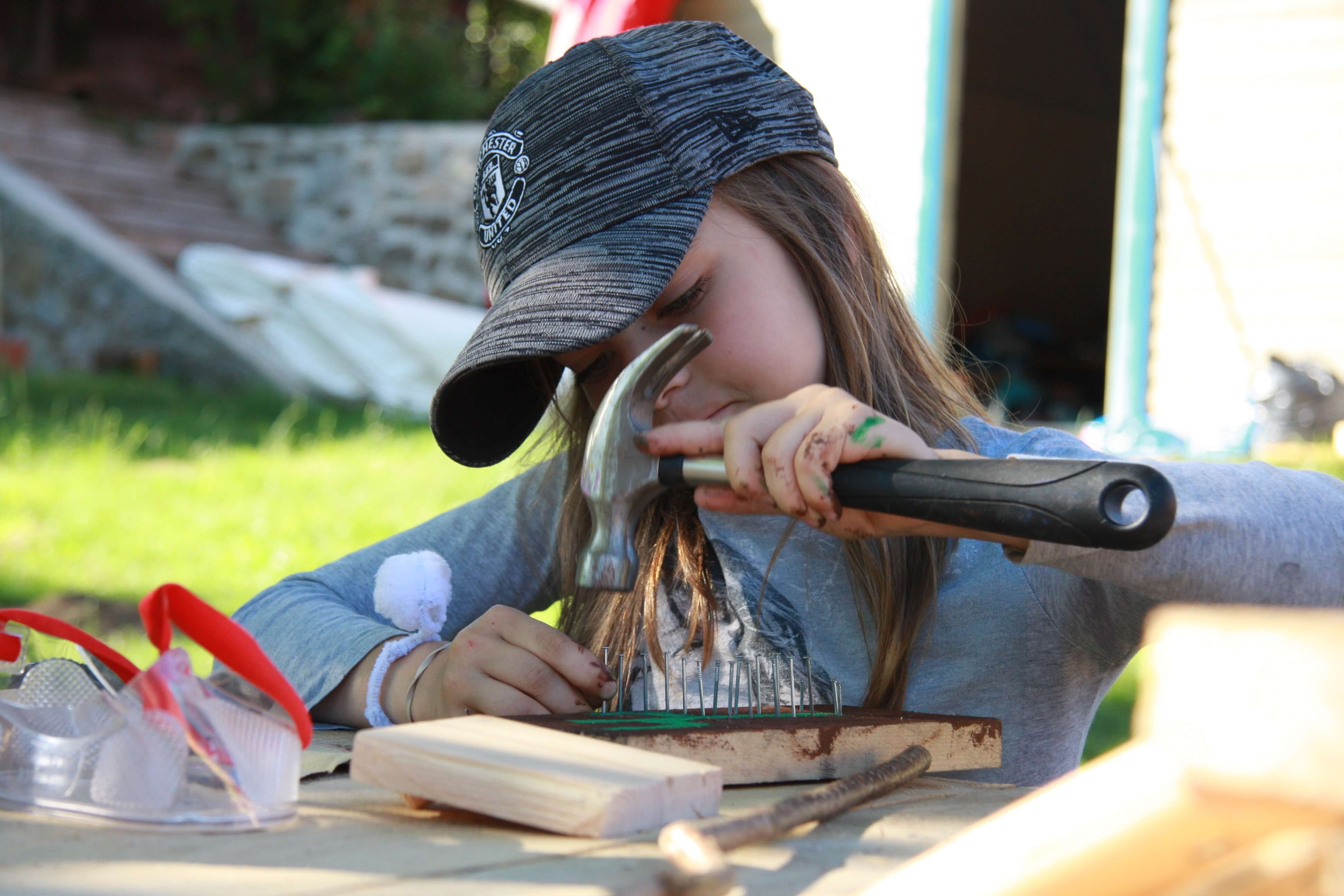
What could some of these impacts on our youth be?
There was an interesting study, pre-covid of course, which highlighted that one in three girls is unhappy with their appearance by the age of 14. Whereas, only a year before the number was 1 in 7. This incredible drop off in less than a year is credited to the significant increase of screen time amongst teenagers. And this was before covid remember.
This is just one example of many apparent negative consequences of screen addiction which we’ve covered in an article we wrote, with anxiety and depression being the clear issues of many that arise from our dependence on electronic media.
Is it safe to say that depression amongst teenagers is the biggest concern for parents?
In fact, no. Looking at that 1 in 5 number, 33% of these teenagers are diagnosed with anxiety related disorders whereas depression is 17%. Depression without doubt is something we all need to be aware of, but it isn’t as prevalent as mass media would like us to think.
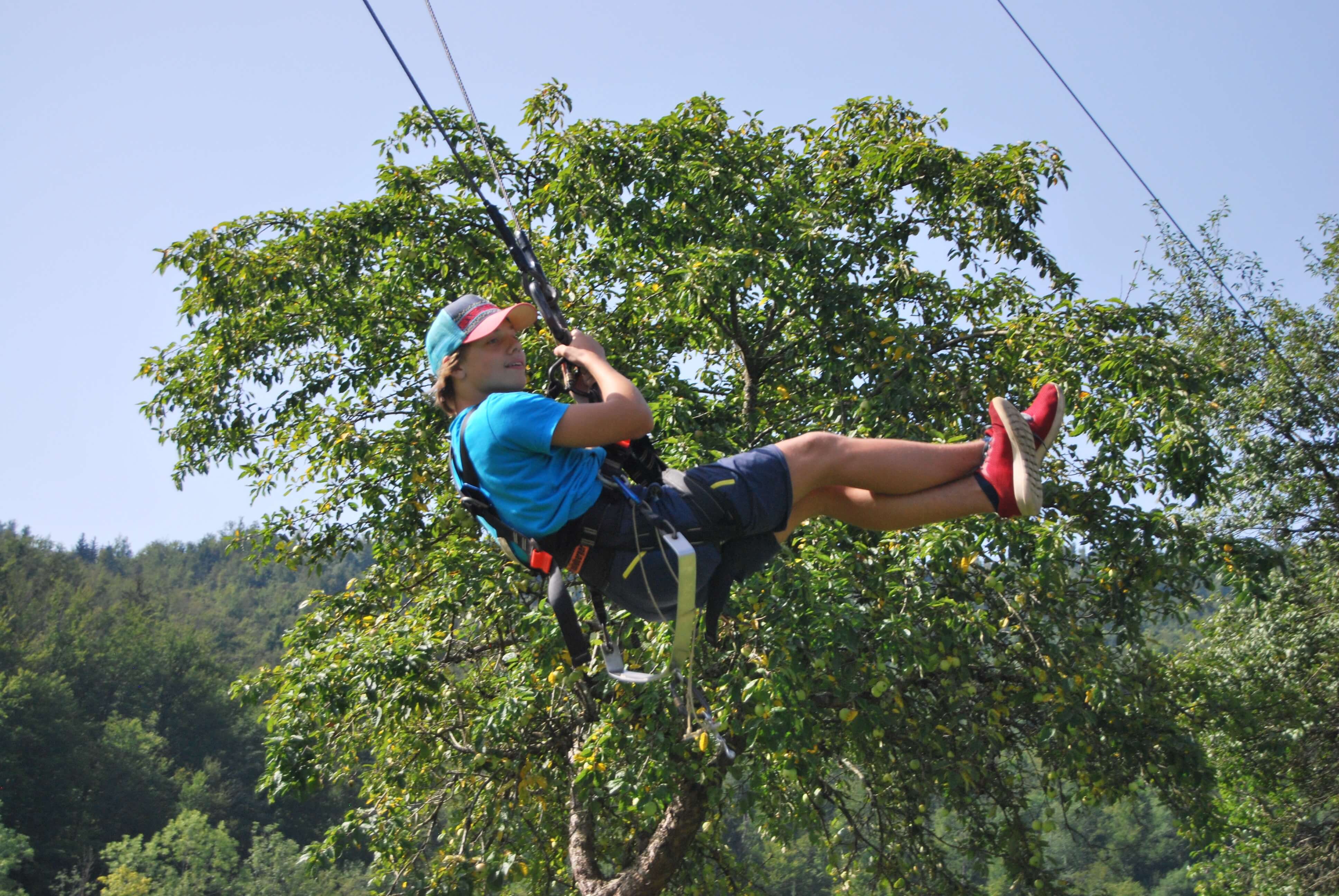
What are some signs parents can look out for in connection to anxiety?
Again, I’m certainly no expert on this area but when it comes to anxiety, we train our summer camp staff to be aware of:
- Children constantly seeking reassurance through questions
- Excessive worry
- Easily distracted and/or fidgeting (playing with the hands, grabbing things)
- Not being able to sit still
- Stomach/headaches that have no physical cause
- Excessive sweating & physical discomfort
It’s also possible that children detach themselves more from their families, and can also display a little more aggressive tendencies whether that be verbal or physical. One of the key areas to look out for is difficulties in sleeping.
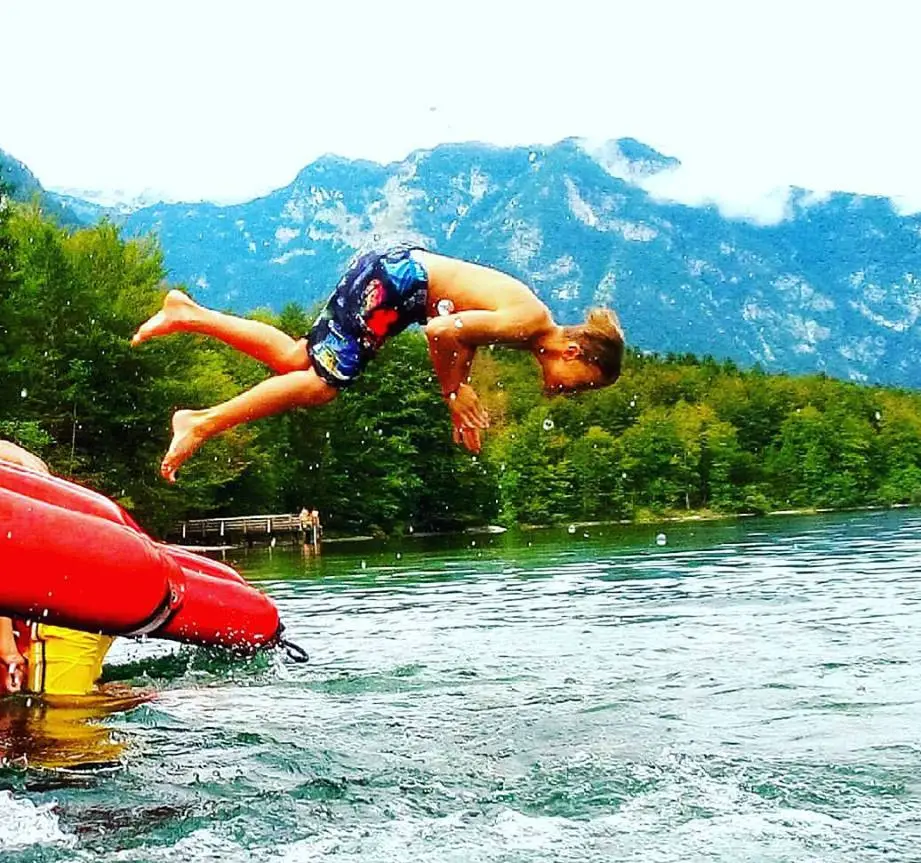
Sleep is one of the areas parents will see affected the most. Why is that?
Well, the excessive screen time has definitely had its impact on children’s sleep patterns. But we could also point to the lack of structure in our children’s lives due to the everchanging school and extra-curricular schedules. We can even talk about the heightened stress response, in other words flight or fight, due to the complete confusion of how to react to the virus. What do children do? It’s a very challenging time for everyone and sleep seems to be paying the price for it.
You mentioned earlier that your summer camps are conducting specific mental health training. Could you tell us more?
It’s something we’ve been wanting to do for a number of years now, however we could never find the right organisation to give us adequate support. There are some mental health trainings in the UK, but nothing specifically for summer camps so it took some time to find L.E.A.D. which is based in the US.
Adding to this, it’s been difficult planning for it with the uncertainty around the camps. At present I’m going through the process of getting officially certified as an instructor in Camp Mental Health so I’ll not only be able to train our staff but also our teen campers who also want to complete such training. Maybe it’ll be too early to officially certify all of our staff for this summer though. We’ll see.
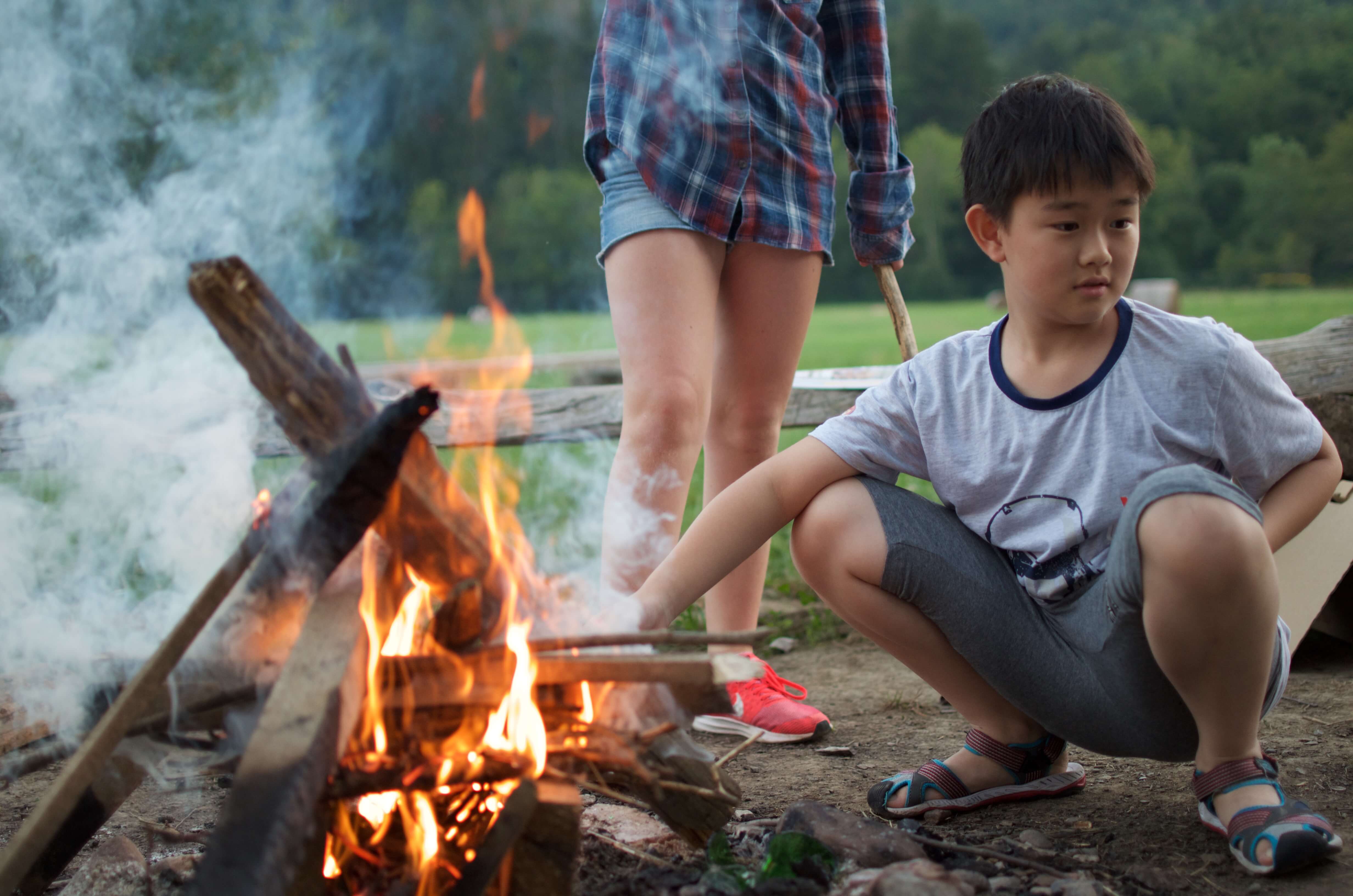
This seems like a new concept. Are there other camps in Slovenia doing the same type of training?
In regard to this specific organisation, we’ll be the first summer kids’ camp in Europe to have their mental health certification. There are mental first aid courses in Europe especially in the UK, however when it comes to camps as far as we’re aware we’ll be the first.
In saying that, I’d hope that all organisations working with children have some type of mental health training, especially in these times. Our children need support and understanding now more than ever which is what we’re doing at Explorer Camps.
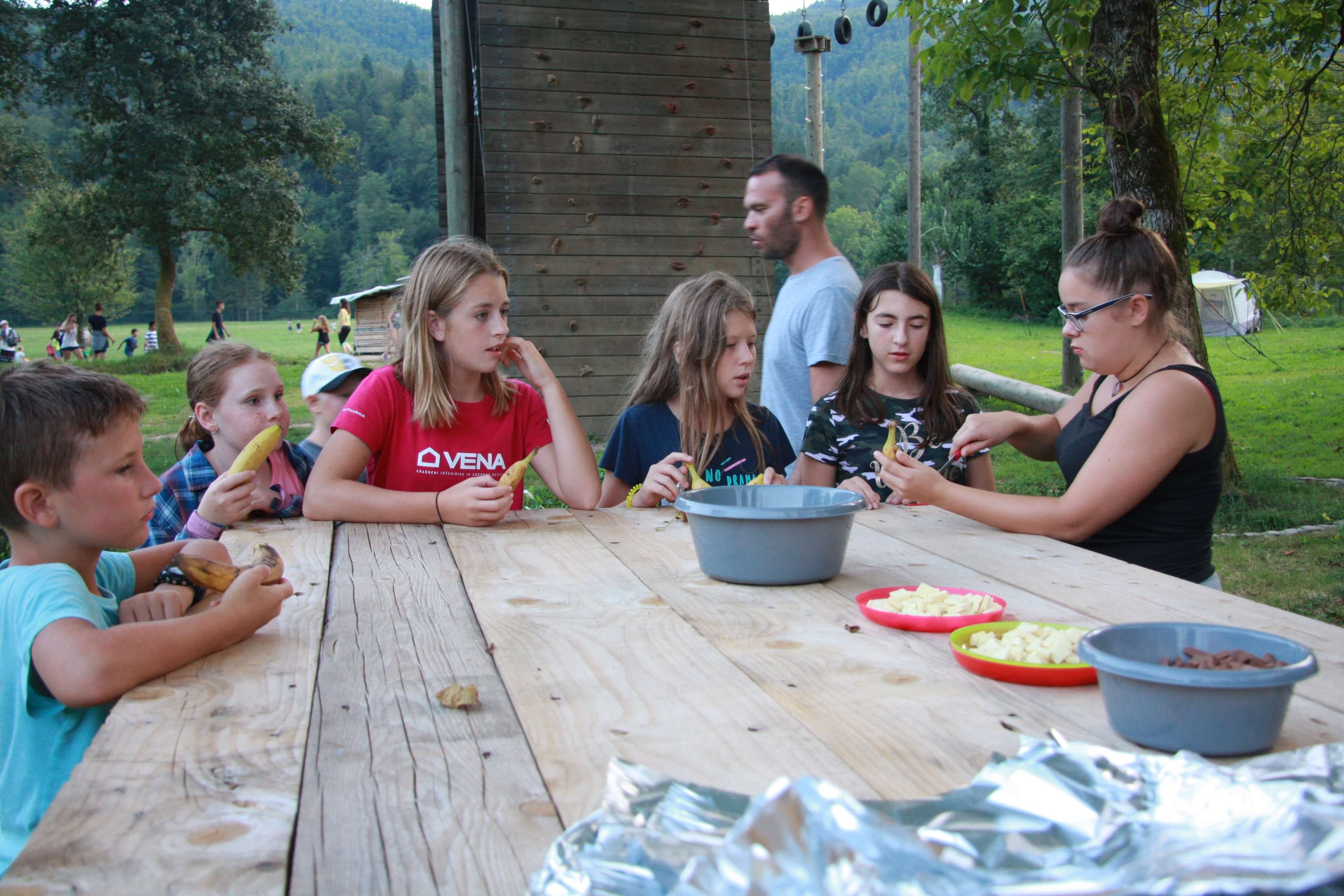
Lastly, taking all of this information into account. What can parents do about mental health?
Oh, that’s a hard one as again, I’m no expert on this matter … yet!
But the most important thing we communicate to our staff at summer camp is to take mental health seriously. Be aware. Be patient. Create a positive and caring environment.
Because, unfortunately, it’s just not taken seriously by society. It really isn’t.

You don’t think parents take it seriously enough?
I’m not saying that directly at parents, but society in general.
I liken it to this situation.
If a child breaks their leg, the last thing we say is to walk it off.
If a child contracts a serious disease, we wouldn’t dream of saying that it’s all in that child’s head.
If a child has an accident and loses feeling in their legs, we wouldn’t dare tell them to sleep it off and see how they feel in the morning.
But when it comes to mental health, too often those with the illness are told exactly this. Walk it off. It’s in your head. Sleep it off and see how you feel in the morning.
The first step to helping is changing our perception of what mental health is and how we can improve it. By making this simple change, children will feel our honest compassion and care. Then you can start to move forward … together!
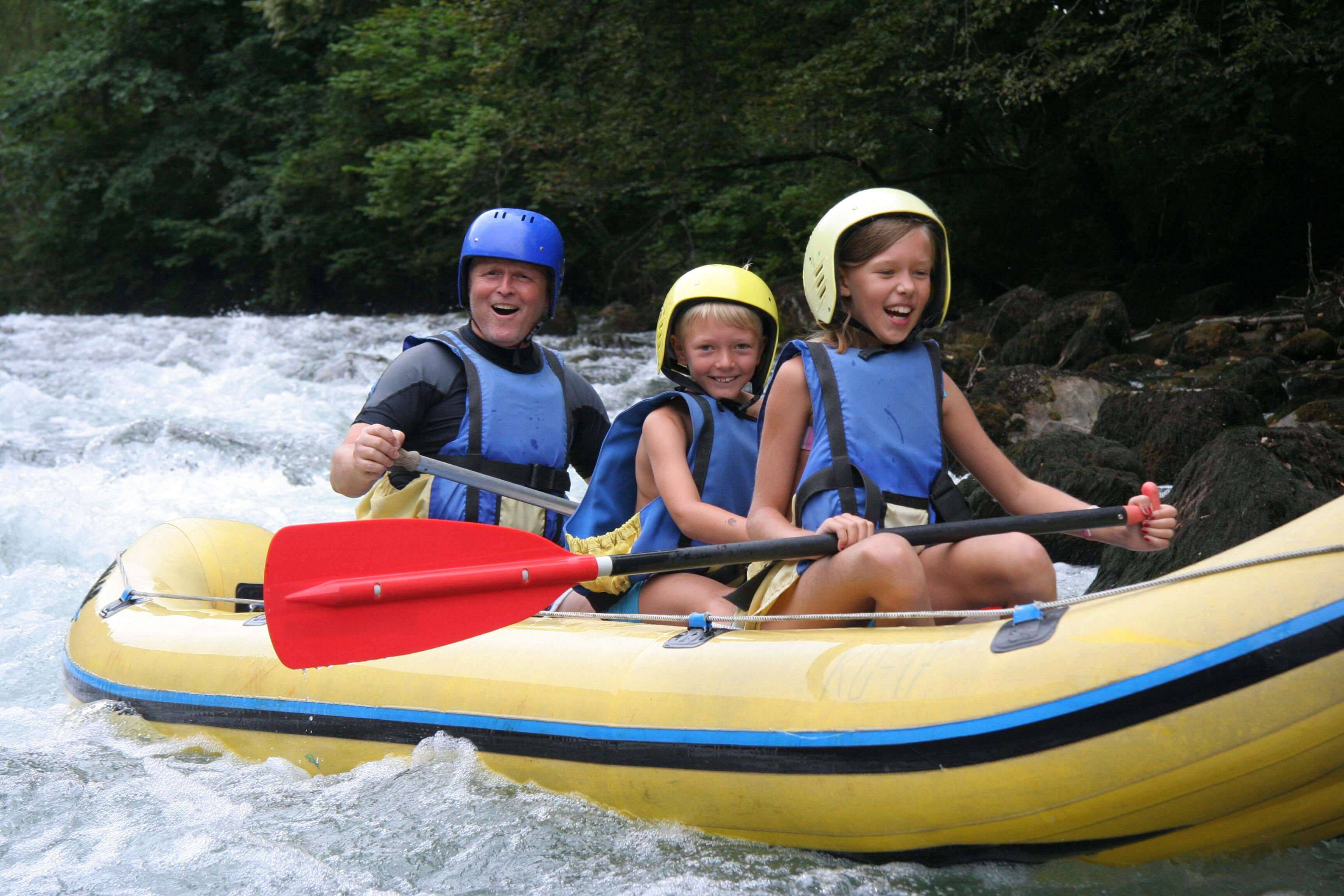
STA, 3 April 2021 - Some 150 protesters gathered in the Maribor city centre on Saturday to protest against anti-coronavirus measures. The rally was organised through social networks. The protesters did not wear face masks and did not keep a safety distance.
"Enjoy while you can", "Today we have classes in a furniture store", and "We are wearing a smile at schools not masks" were some of the banners the protesters carried. One of the banners urged teachers to wear masks and get tested so that schools could be open.
Police officers merely monitored the event and occasionally issued a warning on a megaphone.
Taxi drivers joined the rally by driving their cars in a roundabout and honking their horns.
The group that gathered in Main Square was later joined by a large number of people and together they proceeded to the Freedom Square shouting "Masks off, and the government to jail", the newspaper Večer reported online.
The initiators of the rally also noted that a call by parents, pedagogues and other citizens against testing children for coronavirus had already been supported by 15,000 signatures.
They believe this clearly shows that they do not allow for any interfering with the basic constitutional and human rights of children and other citizens.
The initiatives, including We Will Not Give Our Children and Masks Off, claim that the authorities are destroying the foundations of the rule of law in the name of the epidemic, using repression and destroying the essence of human beings.
Meanwhile, the epidemiological situation in the country is deteriorating. On Friday, 1,296 infections were confirmed in 4,998 tests, pushing the rolling seven-day average of new cases to 1,047.
Currently, more than 530 Covid-19 patients are in hospitals, 16 more than the day before, including 123 in intensive care, up five from the day before. Five people died.
STA, 2 April 2021 - Slovenia will get its pro rata share from a package of 10 million doses of the Pfizer/BioNTech Covid-19 vaccine whose delivery has been pushed forward from the first to the second quarter of the year. Under the plan agreed last evening by EU member states, this means approximately 47,000 doses of the vaccine.
Slovenia, Austria and the Czech Republic will get their share relative to the number of citizens, having decided not to participate in the solidarity model.
The remaining countries agreed with the proposal of the Portuguese presidency that certain countries which are furthest behind in the vaccination effort get higher shares.
Under the agreement reached on Thursday, Bulgaria, Croatia, Estonia, Latvia and Slovakia will thus get a combined 2.85 million doses of the vaccine shipment, and the remaining countries will get 6.66 million doses, expectedly in the second quarter of the year.
Prime Minister Janez Janša said in a tweet that "the solution is acceptable for Austria and Slovenia, but not for the Czech Republic, which is currently severely affected."
Janša added that "at least five million doses out of the ten million that had been agreed in principle on Thursday should have been distributed under a solidarity-based model for all to be covered, including the Czech Republic."
The government said in a press release Slovenia, along with five other countries, had tried to bridge the widening differences in the vaccination rate between member states.
In particular, Slovenia wanted five million vaccines to be distributed on a solidarity basis, not three million as the Portuguese presidency proposed.
Reiterating Janša's statement, the government voiced regret at the decision being detrimental to Czechia, noting that countries which may be able to vaccinate over 60% of their populations by June had refrained from solidarity with Czechia.
In total, Slovenia received roughly 14,000 more doses than under the Portugal presidency's proposal, but it appears it will donate the bulk of that to Czechia, while Austria decided to donate 30,000 doses from its allotment.
Czech Prime Minister Andrej Babiš wrote on Twitter today that "another act of solidarity towards the Czech Republic comes from Slovenia, the small country that offered 10,000 doses to share. Thank you so much friends and @JJansaSDS for your kind help."
Janša replied on Twitter that a year ago, "when Slovenia was in a desperate situation without personal protective equipment,
Czech Republic helped us. We said we will never forget."
The latest data on coronavirus and Slovenia, while the best data on vaccines (in Slovene) is here





